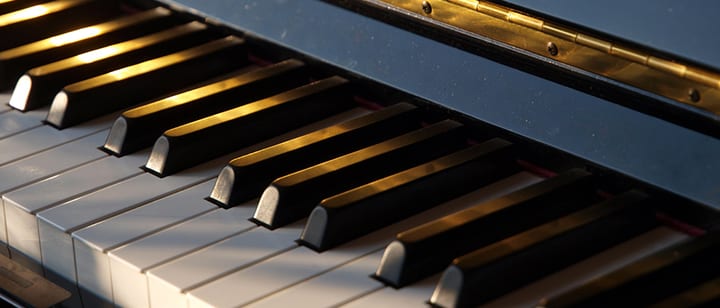 When you’re looking to buy a piano, your primary concerns are likely to be whether it is playable and suitable for your needs, and if it will fit comfortably into your home. However, if you also tailor your purchasing habits to looking after the environment and keeping your ecological footprint as small as possible, buying a new piano may be something that gives you serious pause for thought.
When you’re looking to buy a piano, your primary concerns are likely to be whether it is playable and suitable for your needs, and if it will fit comfortably into your home. However, if you also tailor your purchasing habits to looking after the environment and keeping your ecological footprint as small as possible, buying a new piano may be something that gives you serious pause for thought.
Digital or Acoustic
If you’re short on space and funds, your first thought might be to get a good digital piano. However, digital pianos don’t last forever, and replacing all those electronic components and plastics every decade or so isn’t very eco-friendly.
A conventional acoustic piano will last a lifetime. Or will it? Keys, strings, and other parts of the instrument may need replacing over its (or your) lifetime, and the energy expended for another frame casting is considerable, not to mention the ecological cost of timber and the at-best-dubious ethics of fitting ivory keys.
So it’s harder to make the decision to buy a piano based on the digital or acoustic argument than you might think. Instead, your best bet is to research how to limit the impact most effectively rather than hope to find a truly eco-friendly and sustainably built piano.
Ivory or Plastic Keys
We’ve discussed the ethics of ivory keys on pianos, and how it may help to bring the demand for poached ivory to an end if more materials were recycled. If you buy a piano now, you’re far more likely to have plastic keys than ivory, and many makers simply will not manufacture them at all, as modern plastics are just as responsive and touch-sensitive as ivory. However, if we’re really talking about using recycled materials to take our planet-saving principles one step further, ivory keys dating from the early years of the twentieth century are worth considering.
Sustainable Wood Sourcing
Another thing to consider is how the rest of your piano is manufactured. Few instrument manufacturers make a point of using wood from sustainable forests when making piano casings, so it’s worth asking plenty of questions about where the timber was sourced from, and doing your research with regard to responsible forestry. It’s up to you, as a buyer, to make an impact here — look for a FSC (Forest Stewardship Council) label, which indicates that the wood used has been harvested sustainably. Many musicians have shown their support for the Lacey Act, which bans the import and trade of illegally logged wood and the illegal trade in wildlife.
Is It Just One Big Headache?
The key to being truly eco-friendly comes down to personal responsibility; if we’re using common sense when choosing to reduce packaging on what we buy and how diligently we recycle, we’re already reducing our consumer footprint. In addition, the mantra of “make do and mend” is worth keeping in mind. It’s not unusual for sale rooms to occasionally “give away” stock, and although these instruments are — in their current state — fit for nothing better than a bonfire, there’s a fair chance that some of the piano will be useful for spare parts. For example, an iron frame is costly both financially and ecologically, but a reclaimed frame from a piano at the end of its life is a project perfect for someone who enjoys building things.
When looking to buy a piano, consider going secondhand — there’s a beauty in older instruments that you are unlikely to find within a reasonable price range, and you are reducing the need of the ecological footprint required to make a new instrument. If you go acoustic, and repair and recycle rather than replace, you’re well on the way to doing your part — and looked after properly, your piano will last you a lifetime.
Photo by mararie
Jill Cole

